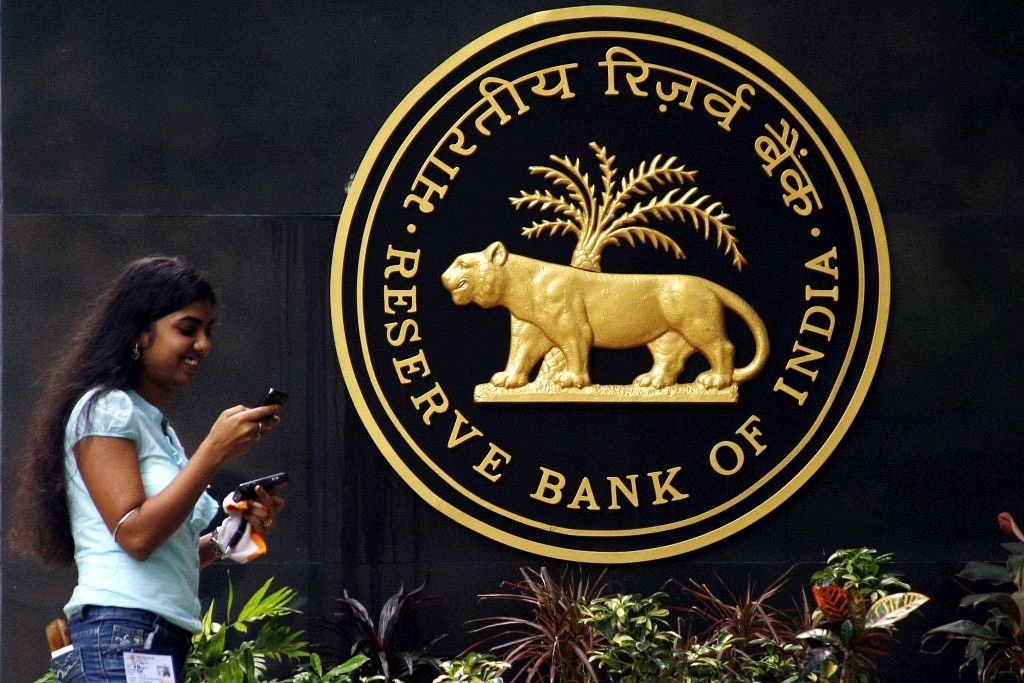Economy
With Government On The Defensive On Many Fronts, RBI May Have Sensed An Opportunity
- The central bank senses a political weakness in the Modi government at this juncture, including the possibility of widespread support from the opposition as we move into election mode.
- Hence the new, possibly opportunistic, boldness.

RBI’s Mumbai office. (Nagesh Ohal/India Today Group/GettyImages)
If one is wondering what prompted Reserve Bank of India Deputy Governor Viral Acharya to launch a broadside against government interference in the central bank’s working, there may be a simple explanation: the central bank senses a political weakness in the Narendra Modi government at this juncture, including the possibility of widespread support from the opposition as we move into election mode. Hence the new, possibly opportunistic, boldness.
Both Governor Urjit Patel and the Deputy Governor know that the Modi government is on the defensive for a wide variety of reasons, from the PNB fraud to Rafale, from the fall of the rupee to the continuing weakness in the banking and non banking financial company sectors, and from political threats of rising opposition unity to weak jobs growth. It is this weakness, and the strong possibility of political support from the opposition, that the RBI is trying to exploit.
Unaccountable institutions, who derive their powers from government decisions, do not usually turn against their masters unless they sense an opportunity in the government’s weakness, or promises of support from another source.
If one looks at the past, this is exactly how things happened.
In 2014, at the peak of his power, Narendra Modi enacted the National Judicial Appointments Commission (NJAC). The judiciary was unhappy, but it could move brazenly to reject the constitutional amendment – an unelected body rejecting the overwhelming will of the people – due to the promises of Congress support for it. The judiciary knew, that once NJAC was annulled, there was little political consensus for its return with some changes. When senior SC counsel and Congress lawyers said they would challenge the amendment that was passed almost unanimously by Parliament and state assemblies, the court knows it was on a good wicket.
Similarly, under former chief justices of India, J S Khehar and Dipak Misra, the court was inclined to expedite the Ayodhya case hearings; but after the change of guard, and with the Congress now showing a rise in electoral prospects, the new CJI Ranjan Gogoi has been happy to oblige and delay the hearings. To assume that the shift in political winds has nothing to do with this subtle shift in the court’s stand would be difficult.
In January 2017, when the current Central Bureau of Investigation chief, Alok Verma’s candidature was being considered, then CJI Khehar went with the government and allowed his appointment despite the Congress’s opposition. Today, with the CBI in crisis as the No 1 and No 2 are fighting against one another, the Congress has emerged as the defender of Verma. Verma’s decision to go to court over his forced leave has probably been emboldened by the likelihood that the political opposition would support his case. In 2017, they were opposing his appointment. So, his “independence” may again be the result of a shift in political winds rather than any innate attachment to the idea. Few people believe that CBI directors are truly independent, and for Verma to suddenly discover it is interesting.
What this shows is that the Modi government has not been shrewd enough in managing its key heads of institutions. It assumed that they had no agendas of their own, or any political antennae that could decipher which way the wind was blowing.
It is most likely that so-called independent institutions start acting independent when they see an opportunity present itself in the political domain. The Modi government should have acted proactively to contain this opportunistic streak in the people heading our institutions. But it clearly failed to do so.
It is not alone in making this mistake. Under the United Progressive Alliance, finance minister P Chidambaram could not see that RBI Governor, Y V Reddy, and later D Subbarao, both either reappointed or appointed by him, could develop spines of their own when the opportunity presented itself.
Modi and Arun Jaitley have made the mistake of presuming that Urjit Patel ought to be beholden to the National Democratic Alliance government since they gave him his chance in 2016, when Raghuram Rajan was eased out. But Patel is taking advantage of the government’s weakness to get his own punches in. He knows that a decision on his reappointment/extension is due only in August-September 2019, long after the 2019 general elections. This government may or may not be around at that time, but right now, it is in no position to remove him, given the multiple crises in the political economy.
Support Swarajya's 50 Ground Reports Project & Sponsor A Story
Every general election Swarajya does a 50 ground reports project.
Aimed only at serious readers and those who appreciate the nuances of political undercurrents, the project provides a sense of India's electoral landscape. As you know, these reports are produced after considerable investment of travel, time and effort on the ground.
This time too we've kicked off the project in style and have covered over 30 constituencies already. If you're someone who appreciates such work and have enjoyed our coverage please consider sponsoring a ground report for just Rs 2999 to Rs 19,999 - it goes a long way in helping us produce more quality reportage.
You can also back this project by becoming a subscriber for as little as Rs 999 - so do click on this links and choose a plan that suits you and back us.
Click below to contribute.
Latest